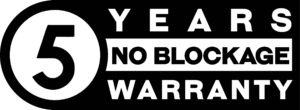Powerflush nearby to Kidlington
 Kidlington is a large village and civil parish in Oxfordshire, England, located 5 miles (8 kilometers) north of Oxford and 712 miles (12 kilometers) south-west of Bicester. Despite its size, it is still classified as a village. The parish population was 13,723 according to the 2011 Census.
Kidlington is a large village and civil parish in Oxfordshire, England, located 5 miles (8 kilometers) north of Oxford and 712 miles (12 kilometers) south-west of Bicester. Despite its size, it is still classified as a village. The parish population was 13,723 according to the 2011 Census.
Check this link for powerflushing service in heating systems in these postcode areas:
HISTORY
The name Kidlington is derived from the Old English Cudelinga tun, which means “the tun (settlement) of the “Kidlings” (sons) of Cydel-hence.” Chedelintone is mentioned in the Domesday Book in 1086. The spelling Kedelinton first appears in a Calendar of Bodleian Charters in 1214. The Church of England parish church of St Mary the Virgin was built in 1220, but there is evidence of a church on the site dating back to 1073. The church has beautiful medieval stained glass and a 165-foot (50-meter) spire known as “Our Lady’s Needle.” It is a Grade I listed structure. The tower has an eight-bell ring. The seventh bell was cast in 1700 by Richard III Chandler of Drayton Parslow, Buckinghamshire. The tenor bell was cast in 1708 by Abraham I Rudhall of Gloucester, and the fifth bell was cast in 1715. The Whitechapel Bell Foundry’s Mears and Stainbank cast the treble, second, third, fourth, and sixth bells in 1897, the year of Queen Victoria’s Diamond Jubilee.
The archaeological remains of a three-sided moat can be found behind the church. A recently discovered causeway may have Roman origins. St Mary’s Rectory is Tudor in style. Sir William Morton built almshouses next to the church in 1671 in memory of his wife and children, the names of whom are inscribed above the windows. Sir William was a Royalist commander during the Civil War, and he lived in nearby Hampden Manor on Mill Street. Sir John Vanbrugh lived at Hampden Manor during the construction of Blenheim Palace in Woodstock. Vanbrugh designed the square tower-water closet in Hampden Manor’s front garden. It feeds a brook that now runs underground along Mill Street into the nearby Cherwell. Thomas Beecham created his pills while living in a cottage near the manor and working as a gardener for John Sydenham for a time.
The Domesday settlement grew from an ancient village near the church. It has just as many 18th-century Georgian structures as it does modern houses. A large area south of it was unenclosed common land until the Inclosure Acts of 1818, and the village was widely known as Kidlington-on-the-Green. Just before WWII, the land was developed as a garden city. Kidlington was subject to ribbon development along the main (now A4260) road through the village in the 1920s and 1930s. Since 1945, many housing estates on both sides have been built behind this. Oxford Zoo was once located in Kidlington, which is now home to the Thames Valley Police headquarters. It was only open from 1931 to 1937, when the animals were relocated to the Dudley Zoo. To commemorate the zoo and an elephant that lived there, an elephant sculpture was installed on a roundabout at the southern end of Kidlington in 2018.
Kidlington grew to be a contender for the largest village in England (and even Europe) in the twentieth century, with a population of 13,723, up from 1,300 in 1901. Its residents have so far resisted efforts to change its official status to town, despite the fact that it clearly qualifies. Following a peremptory change to town status by the Parish Council in November 1987, this was voted down by 83% of the local electorate three months later. In June 2016, the BBC reported that weekly coachloads of Chinese tourists arrived on Benmead Road in Kidlington, posing for photos in front gardens and against parked cars for no apparent reason. The story sparked worldwide interest, with locals in Kidlington offering interviews about their experiences.
The BBC discovered that “looking for the true sense” of Britain was one of the reasons for the visits in November 2016, after analyzing the results of a Chinese-language questionnaire given to some tourists.
An investigative journalist discovered that Chinese tour operators charge an additional $68 for Chinese-language tours of nearby Blenheim Palace. Tourists who do not wish to pay to visit Blenheim are dropped off in Kidlington, which they find charming but which tour operators choose because it is too far from Blenheim for tourists to walk to the Palace and pay the lower £25 price for public tours in English.

